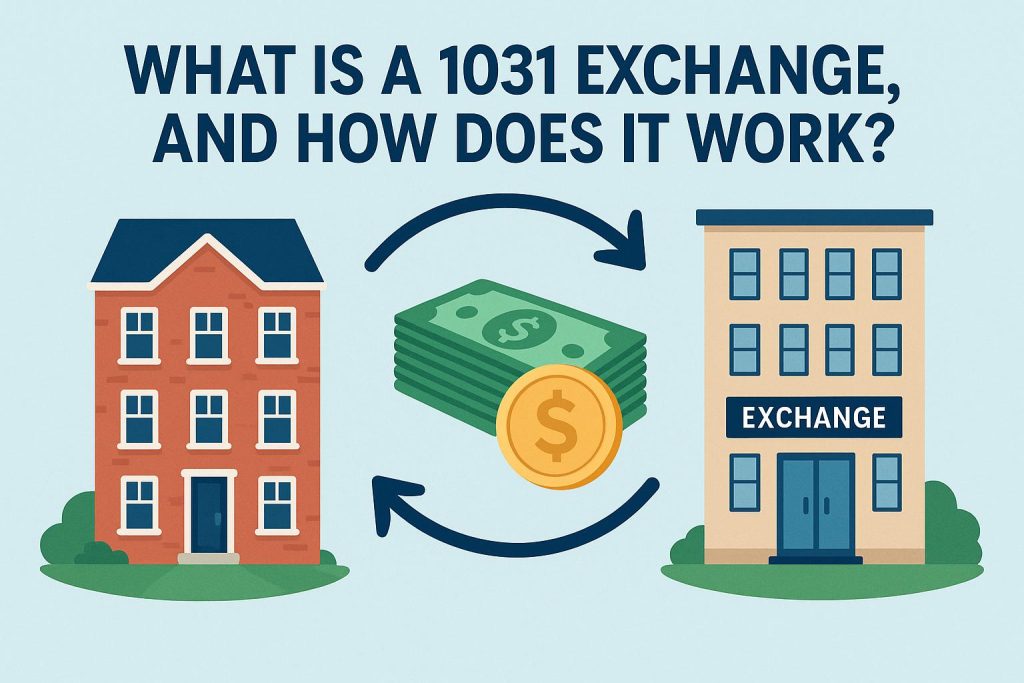What is a 1031 exchange, and how does it work?

Understanding a 1031 Exchange
A 1031 exchange, derived from Section 1031 of the United States Internal Revenue Code, is a provision that offers real estate investors the opportunity to defer paying capital gains taxes on an investment property upon its sale. This deferral is contingent upon the reinvestment of the proceeds into a similar type of property. The process of a 1031 exchange serves as a valuable tool for investors, providing a mechanism to reinvest in real estate without the immediate tax burden commonly associated with capital gains. Notably, it benefits those investors pursuing the upgrade or diversification of their real estate portfolios.
Key Features of a 1031 Exchange
For an investor to successfully leverage a 1031 exchange, several important rules and criteria must be satisfied. At the forefront is the requirement that the exchange involves properties that are considered “like-kind.” It’s crucial to understand that “like-kind” in this context doesn’t necessitate that properties be identical in nature. Instead, the term refers to assets held for investment, trade, or business purposes, offering investors substantial flexibility in their real estate ventures.
Another essential aspect of the 1031 exchange is adherence to strict timelines laid out by the IRS. Specifically, once the sale of the relinquished property closes, the investor has precisely 45 days to identify potential replacement properties and an additional 135 days (for a total of 180 days) to complete the purchase of the new property. These timelines are inflexible, and failing to meet them can jeopardize the tax deferral benefits.
1031 Exchange Process
The process of executing a 1031 exchange begins with the decision of an investor to sell a property. Instead of directly receiving the proceeds from this sale, the funds must be managed by a qualified intermediary. This intermediary ensures that the proceeds are securely held until they can be allocated towards the purchase of a replacement property, which is essential for maintaining the tax-deferred status.
Identifying replacement properties is another pivotal part of the process. Within the 45-day period post-sale, the investor must pinpoint up to three potential properties that are to be acquired as replacements. This period, known as the 45-day identification period, is crucial. Furthermore, it is important that the investor completes the acquisition of the identified property or properties within 180 days from the closing of the original property sale.
Benefits of a 1031 Exchange
The deferral of capital gains tax is the most significant advantage of executing a 1031 exchange. By deferring these taxes, investors can achieve substantial savings, allowing for more capital to be reinvested into real estate ventures. Such additional capital can potentially lead to an increase in overall returns for the investor. Moreover, a 1031 exchange affords flexibility for investors to alter their investment types or locations, facilitating portfolio diversification and the improvement of investment properties.
Considerations and Limitations
Despite the multiple benefits, participating in a 1031 exchange is not devoid of limitations and considerations. One key limitation is that any cash or other non-like-kind property received during the exchange is often subject to taxation. Additionally, rigorous adherence to IRS rules and specified timeframes is mandatory; any deviation or non-compliance can result in the disqualification of the exchange and the immediate imposition of taxes.
Real estate investors should bear in mind that a 1031 exchange does not eliminate tax liability altogether; it merely defers it. The deferred tax will eventually become due upon the final sale of the property if not exchanged again under a 1031. For this reason, it is crucial for investors to be well-informed and strategic about when and how they conduct these exchanges.
It is highly recommended for individuals considering a 1031 exchange to consult with a knowledgeable tax professional or real estate expert. These professionals can offer assistance in navigating the intricacies involved in this complex process. To explore more details and obtain updates about 1031 exchanges, the IRS website or a specialized real estate advisory firm can serve as valuable resources.
